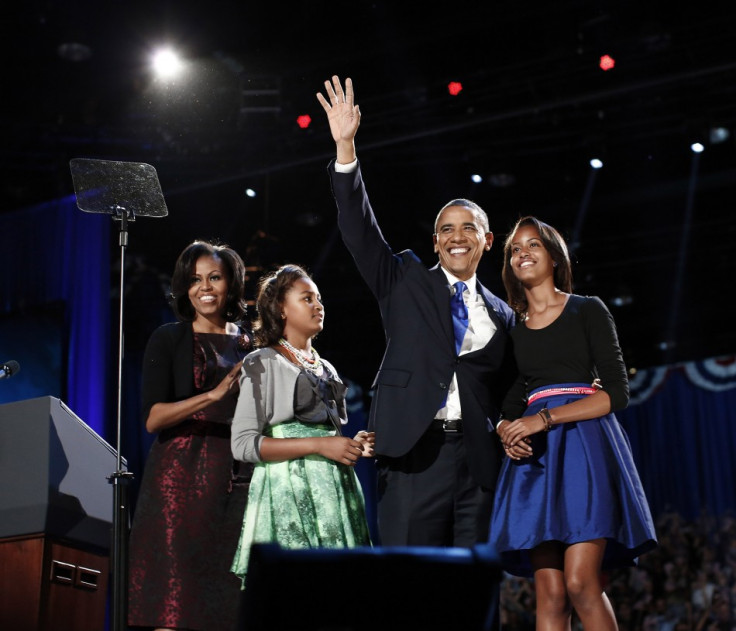Obama Victory: Bad for the Dollar and Banks, Good for Bonds and Gold?

President Barack Obama was swept to a decisive victory in last night's Presidential Election with more than 300 Electoral College votes and the support of more than 58 million American voters.
The victory comes at a pivotal juncture for both the economy and financial markets, given the concern investors have over the paralysis from the impending "fiscal cliff" and the fact that US stocks are, for the first time in two decades, the year's best performing global asset class, according to Bloomberg data (The benchmark S&P 500 is up around 13.5 percent so far this year).
A recent survey by Barclays of 354 major institutional investors with more than $10 trillion in assets under management showed a split between strategies under a second term with Barack Obama or a new Mitt Romney Presidency. "The US elections have the potential to have a significant impact on US equity and interest rate markets," the report said. "Under an Obama win, investors favour bonds and are divided about the direction of equities, but would choose bonds and equities over FX and commodities to express this scenario."
Below is a shortlist of asset classes that are expected to be most influenced by last night's election results:
Good For:
Treasury Bonds: the President is likely to appoint a like-minded successor to departing Chairman Ben Bernanke at the Federal Reserve. If so, the Fed's current programme of near-zero rates and aggressive quantitative easing - along with a healthy dose of treasury supply, should keep the bullish case for bonds alive over the coming year.
Gold: Given the conventional wisdom that Fed policy debases the US currency and creates dangerous inflation risk, Gold is likely to outperform in the coming months, particularly if consumer prices accelerate while the economy slows. (Spot gold is down 3.8 percent over the past year)
Canadian Dollar: investors looking to diversify risk from a falling US dollar will likely find solace and safety in the Loonie, particularly given the hawkish tone of its top central banker, Mark Carney. A weaker US dollar will also lift hard natural resource commodity prices such as oil and metals like aluminium and zinc, all of which form the bulk of Canada's export-led economic growth. (The Canadian dollar is down 2.1 precent against the greenback over the past year)
Healthcare Stocks: The President's signature piece of legislation, the Affordable Care Act - aka Obamacare - is now irrevocably part of American life, having been passed by the legislative branch, signed by the executive and upheld by the judiciary. Mitt Romney had vowed to work towards its repeal, but that's now impossible. As such, healthcare stock gains should continue to develop as providers being to chart the consistency of their earnings potential under the new regime. (The NYSE Healthcare Index is up 16 percent over the past year)
Bad for:
US Dollar: The broadest measure of US dollar performance - the DXY Dollar index - has fallen around 6.3 percent since President Obama's first election victory in 2008. There are myriad reasons for the greenback's weakness but the most likely component to its downward pressure into the next year will come from the assumed continuation of the Fed's low interest rate/quantitative easing policies.
Bank Stocks: Much like the ACA, the President can rightly point to fundamental shift in the culture of financial services in the United States with the passing of the Dodd-Frank reform bill. While not packing the same definitive impact, nor possessing the same "three-branch mandate" the changes it will bring to investment banking in particular look both real and permanent. Expect the new paradigm to trim earnings, returns on equity and growth potential for investment bank stocks in the coming years. (The NYSE Financial Index is up 17 percent over the past year)
Luxury Goods: The first Obama Administration was unyielding in its aim to increase tax rates for the nation's highest earners. This notion took on new life in the conscience of the country with the "Occupy Wall Street" movement and the idea of the "99 percent". Democratic gains in the Senate - particularly in Massachusetts - will add further momentum to the policy aim that could slow earnings in the sector.
Defence Stocks: The US spends around $600bn each year - about 5 percent of GDP - on its military. In fact, US spending alone accounts for 50 cents of every military dollar spent anywhere in the world. That said, the Pentagon budget for the current year, which began on 1 October, will be only $535bn and could fall a further 11 percent under certain senarios if the "fiscal cliff" kicks in on 1 January.
© Copyright IBTimes 2025. All rights reserved.





















